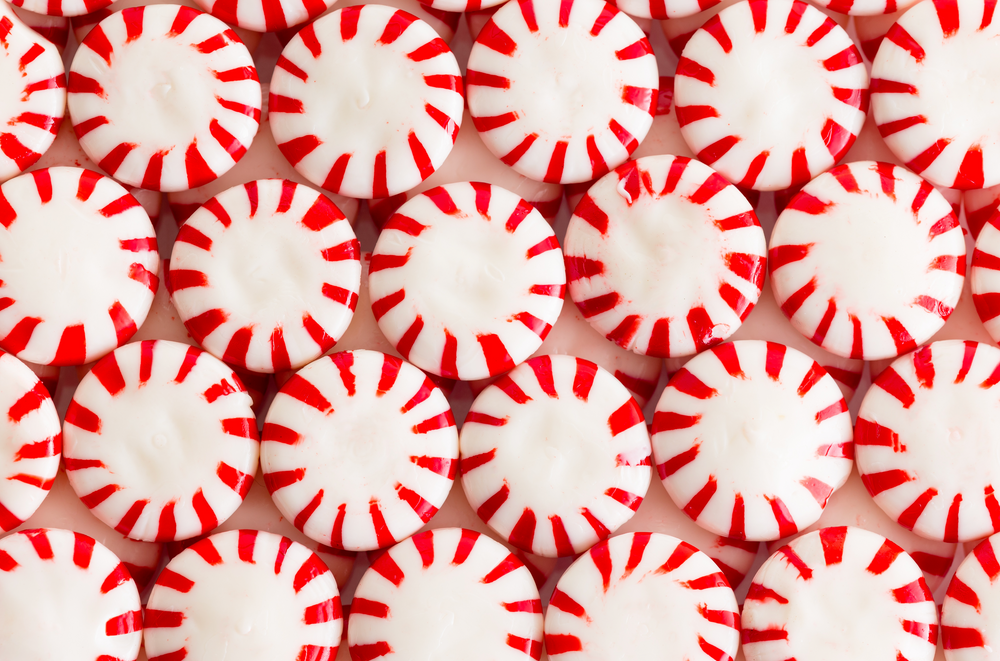The fresh smell and tingly sensation of peppermint is a great rush first thing in the morning, making it a popular choice for a variety of hair care products.
However, the benefits of peppermint are more than just its pleasing scent. Studies show how peppermint essential oil's reaction with our bodies' chemistry can be used to soothe the scalp, creating a healthy environment for hair growth.
What is Peppermint?
Peppermint is a hybrid cross of spearmint and watermint that has been used for centuries in food and medicine.
What Causes Hair Loss?
Hair loss can result from several issues brought on by genetics, stress, medication or lifestyle choices.

Blood flow in the scalp is naturally very poor, and in some cases, this can lead to poor absorption of oxygen and nutrients such as protein and iron, which are crucial to healthy hair growth.
Some other causes of hair loss include:
- Telogen effluvium – The hair growth cycle consists of three stages: anagen, the growing phase; catagen, the transitional phase; and telogen, the shedding phase. After periods of high stress such as injury or childbirth, hair can get trapped in the telogen phase for anywhere from 1-6 months, leading to temporary shedding.
- Androgenetic alopecia – Known as female- or male-pattern baldness, this condition is a result of hair follicles becoming shallow over time, leading to thinner, shorter hair. It affects the front and top of the scalp in men and the entire scalp in women.
- Hypothyroidism/hyperthyroidism – The thyroid produces hormones T3 and T4, which regulate hair production. An overactive or underactive thyroid can trap hair growth in the shedding phase. This condition is not limited to your scalp and can affect areas such as your eyebrows.
- Folliculitis – Folliculitis can affect people of all ages and be caused by a staph infection, skin mites or fungal infection. It can lead to rashes, pustules and pimples, which can cause long-term damage to hair follicles, preventing them from growing hair from anywhere between three months to four years.
- Poor diet – Studies show that diets low in essential nutrients, including iron, protein, niacin, vitamin D and fatty acids can lead to both poor hair health and hair loss.
Can You Use Peppermint Oil for Hair Growth?
Peppermint essential oil is a stimulant shown by multiple studies to have a set of beneficial effects on hair growth.
Vasodilation
Peppermint essential oil contains L-menthol, commonly known as menthol, a vasodilatory compound. Vasodilation is the widening of blood vessels, which leads to freer movement of blood flow around the body.
The scalp has poor circulation in most people, and, in particularly bad cases, this lack of blood flow can lead to hair follicles not receiving the required oxygen and nutrition to grow thick and healthy hair.
The menthol in peppermint oil has been shown to dilate blood vessels. This can lead to the improved delivery of nutrients to hair follicles by bolstering blood circulation, resulting in potential hair growth.
Increased Hair Thickness
Vasodilation doesn't only work to increase nutrient delivery. Its benefits also stretch to increasing follicle depth and numbers.
Genetics, age, the hormone dihydrotestosterone, or a combination of all three can cause shallow hair follicles. Smaller hair follicles mean the hair has less space to grow, leading to thinner hair. Any hair managing to get out of shrinking follicles will be shorter and more fragile.
Vasodilation increases blood flow to starved follicles and has the potential to give them a healthy depth, allowing more surface area for hair to reach its regular strength and length.
Increased Dermal Thickness
The skin on our scalp is very thin, so it naturally receives a low amount of nutrients from blood vessels. This is why male-pattern baldness affects the very top of the scalp as it's furthest from the blood vessels.
As we age, our skin thins, leading to low oxygen uptake across all skin.There's not much we can do for old age, sadly, but for the skin on your scalp, peppermint essential oil has shown to improve dermal thickness, meaning a thicker surface area for the absorption of essential nutrients for healthy hair.
Who Should Use Peppermint Oil For Hair Growth?
Peppermint oil is best used by people with oily hair and skin as it can clean and invigorate the hair without upsetting the natural production of necessary oils, known as sebum. That said, people with drier skin or hair aren't advised against using peppermint, although it may cause irritation when used in high doses or if you are sensitive to this ingredient.
Certain studies show it can promote hair growth without any signs of toxicity, so all hair types can use peppermint safely as long as it's applied in responsible concentrations and doses.
How to Use Peppermint Oil for Hair Growth
There are a few ways you can harness the natural benefits of peppermint for healthy hair.
Divi’s Lineup
The entire range of Divi's products contains not only peppermint essential oil but also L-menthol, a powerful vasodilatory compound present in peppermint. Divi's products contain an array of useful, science-backed ingredients shown to stimulate hair growth, moisturize and soothe itchy scalps.
So when you use any of our products, from Divi’s Scalp Serum to our Shampoo & Conditioner, you're not just harnessing the soothing, dilatory effect of peppermint but tackling a handful of other issues capable of leading to hair loss.
Applying Peppermint Essential Oil
If you’re going to apply peppermint oil yourself, you need to dilute it in a carrier oil to avoid irritation. Fortunately, in Divi’s Scalp Serum, we have crafted our formula with the dermatologist-tested, optimal amount of each ingredient to achieve results, without irritation.
The Benefits of Peppermint for Your Hair and Scalp
Beyond potentially providing your body with stimulation for natural hair growth, peppermint essential oil has a handful of other helpful benefits for your hair and scalp.
Reduced Inflammation
The cooling sensation of peppermint can have anti-inflammatory properties and tackle conditions arising from sensitive or itchy skin.
Balancing pH Levels
Peppermint essential oil can regulate the scalp's production of sebum oil, leading to a healthy pH balance and a healthy scalp.
Antimicrobial, Antifungal and Antibacterial Properties
A study shows that the L-menthol in peppermint essential oil inhibited the growth of 15 bacteria strains, indicating there are multiple benefits to using peppermint oil outside of hair growth.
What Are the Side Effects of Peppermint for Hair Growth?
As with concentrated doses found in most essential oils, high doses of peppermint oil can be harmful. Peppermint oil should always be used in the recommended dose.
Divi's dermatologist-approved formula has been carefully designed with clean ingredients at a safe concentration for anyone, including pregnant women, to enjoy.
For the most part, peppermint essential oil is recognized as a generally safe substance when consumed or applied in medicinally appropriate doses. When mixed with a carrier oil like jojoba or coconut oil, or when professionally mixed in Divi’s products, and rubbed through the hair onto the scalp, the potential irritation caused by peppermint is further mitigated.
Peppermint for Hair: What Does Science Say?
A handful of studies show how peppermint oil and menthol, the primary active vasodilatory compound found in peppermint, can help reduce issues associated with hair loss.
A 2014 Korean study with 61 citations tested saline, jojoba oil, minoxidil (the only hair growth product approved by the FDA) and peppermint oil on mice. After four weeks, the group tested with peppermint oil showed the greatest improvement in a variety of hair growth effects such as follicle depth and number and dermal thickness.
Peppermint oil also increased the production of alkaline phosphatase (ALP) and IGF-1 (Insulin-like Growth Factor 1), chemicals signaling hair is in its healthy anagen growing phase.
A 2022 study found that menthol gel applied to the skin can stimulate blood flow. A similar 2016 study garnered similar results, showing increased cutaneous blood flow as a result of vasodilation.
What to Consider Before Using Peppermint for Hair Growth
Peppermint oil has a good track record in studies performed to test its potential to promote hair growth, but it shouldn't be treated as a magical cure-all. Instead, consider Divi’s lineup as part of a holistic approach to a healthier scalp, which increases your chances of having healthier hair. We also recommend you consider your diet or lifestyle.
Addressing and changing lifestyle choices should always run in tandem with using scalp remedies to ensure the best results.
Final Thoughts
Peppermint oil is commonly used as a remedy for all manner of ailments, from irritable bowel syndrome to tension headaches.
Its success in clinical trials proves its ability to regrow hair. Peppermint oil has shown consistent and prominent hair growth effects. For this reason, it has earned a spot in Divi's carefully curated scalp and hair formulas.
Choosing Divi as your partner in improving your scalp health saves you from having to find the right dosage of peppermint oil. The concentrations in our Shampoo, Conditioner and Scalp Serum are optimally formulated to ensure the maximum effects of this ancient, circulation-boosting ingredient.




































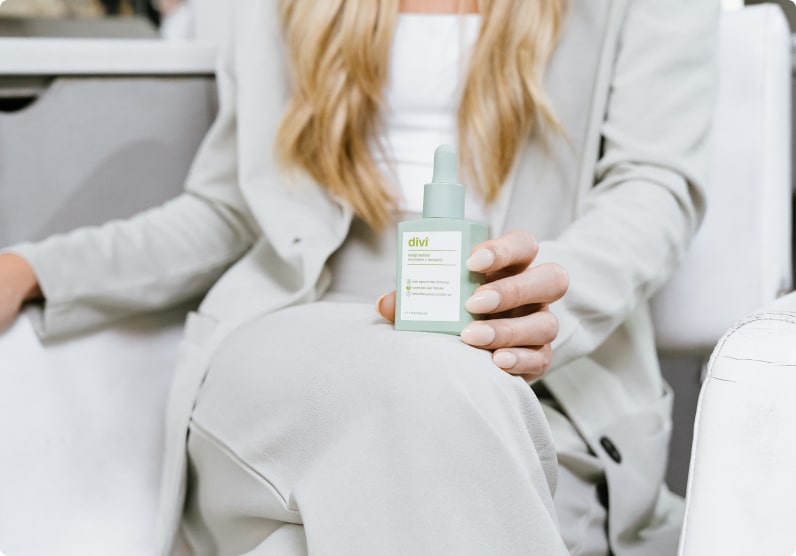
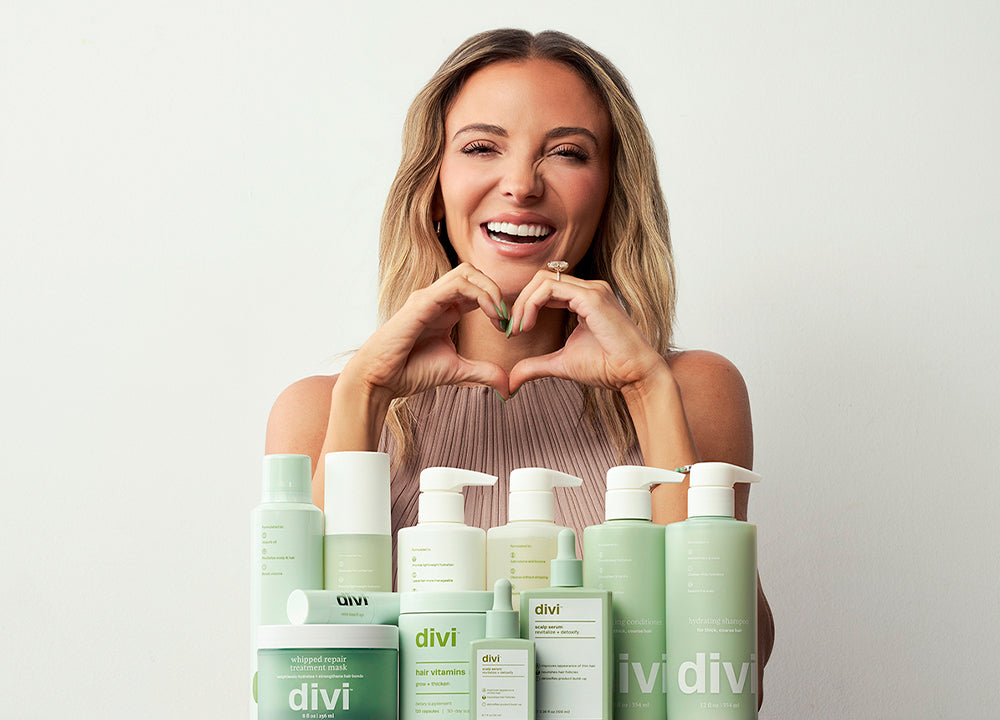

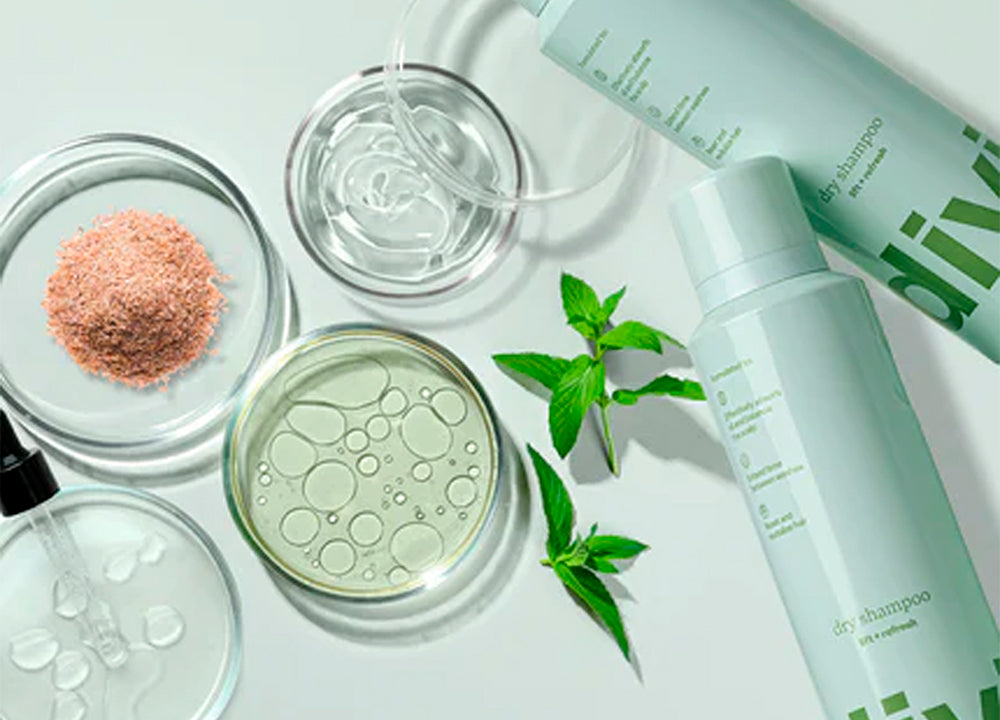

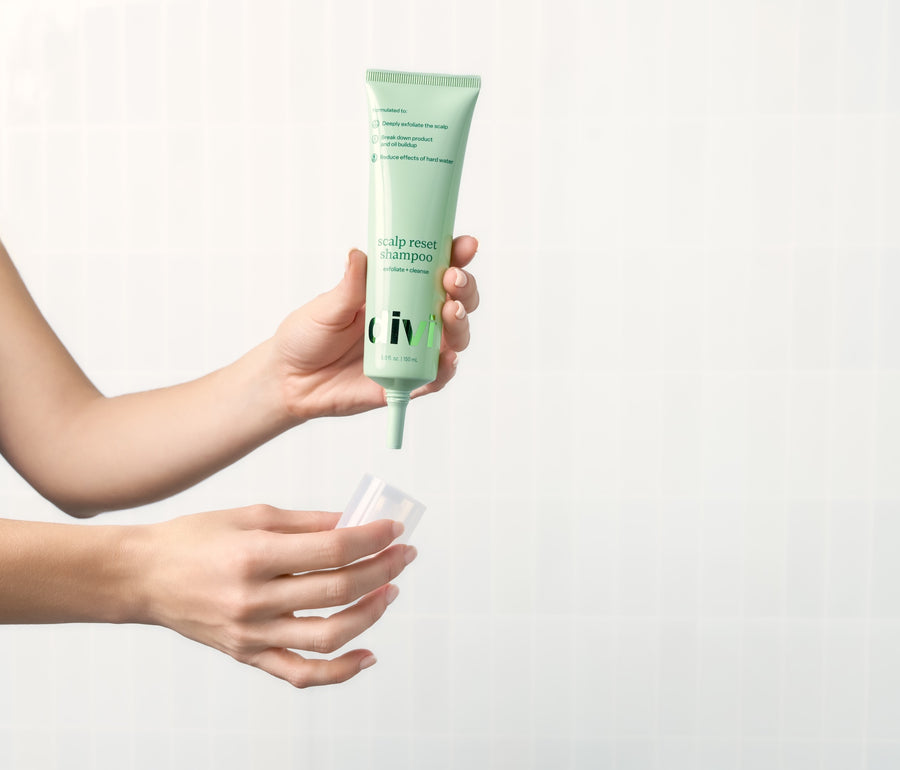

 Scalp Serum
Scalp Serum
 Scalp Reset Shampoo
Scalp Reset Shampoo
 Dry Shampoo
Dry Shampoo
 Best Sellers Bundle
Best Sellers Bundle
 Weekly Reset Duo
Weekly Reset Duo
 Root Touch Up
Root Touch Up
 Strand Plumping Styling Cream
Strand Plumping Styling Cream
 Root Reset Duo
Root Reset Duo
 3-in-1 Leave-In Conditioner
3-in-1 Leave-In Conditioner
 Air Dry Cream
Air Dry Cream
 Wash Day Essentials
Wash Day Essentials
 Frizz-Fighting Trio
Frizz-Fighting Trio
 Home & Away Dry Shampoo Bundle
Home & Away Dry Shampoo Bundle
 Volumizing Shampoo & Conditioner
Volumizing Shampoo & Conditioner
 Jumbo Volumizing Shampoo & Conditioner
Jumbo Volumizing Shampoo & Conditioner
 Volumizing Starter Bundle
Volumizing Starter Bundle
 Major Volume Bundle
Major Volume Bundle
 Volume Rescue Trio
Volume Rescue Trio
 Hydrating Shampoo & Conditioner
Hydrating Shampoo & Conditioner
 Whipped Repair Treatment Mask
Whipped Repair Treatment Mask
 Hydrating Starter Bundle
Hydrating Starter Bundle
 Hydration Heroes
Hydration Heroes
 Travel-Sized Volume Duo
Travel-Sized Volume Duo
 Travel-Sized Hydrating Duo
Travel-Sized Hydrating Duo
 Divi's Discovery Set
Divi's Discovery Set
